Over the last 20-30 years the old opium fields of North Thailand switched to a completely different profile, nowadays they are used as farms where different kind of vegetables, nuts, coffee and tea bushes are grown and cultivated
In Thailand the tea culture is just about to expand, it is mainly relying on the Chinese traditions
when opium production has become strictly banned and controlled by the state, the Thai farmers living in the northern hills, with an elevation of 1200 meters and even above, they had to look for an alternative way of income. Considering the climate and the natural conditions, Camelia sinensis seemed to be a valuable option. Additionally, the Thai state also supported these initiatives centrally, building on the Chinese community living in this area since decades, partially because of the proximity of Yunnan province, the historical homeland of the tea.
In the early ’90s the local farmers in North Thailand also got in touch with their relatives living in Alishan region of Taiwan, hence they have been starting to cultivate a nice variation together, which has been acknowledged by international awards some years later.
One of the centers of tea culture in North Thailand is Doi Mae Salong – this is where our teas are also coming from. This area is also famous by its hundred years old tea bushes, Camelia Sinensis Assamica, growing in the wild and often even growing to a size of a tree. It was the case since centuries, due to the natural expansion of the tea bushes of Yunnan area – the various tribes living nearby have been using the tea leaves in different ways, collecting them with their hands, etc. A famous example is the traditional processing of Pu Errh leaves by the Shan ethnicity, centuries ago.
Since 1960 the number of tea gardens expanded a lot in North Thailand – here the size of the tea trees is severely controlled, never reaching more than 2 meters, the farmers are cutting them back, making the harvest easier this way. These wild trees are stronger, more resilient, their root systems are deep hence making them able to absorb more minerals from the ground, resulting a stronger and more characteristic taste as well. Obviously, as they are growing in the wild, they are organic and pure, at their finest.
7product17
This "Gu Shu Hong Cha" tea comes from old specimens, growing naturally for centuries in the mountains of Northern Thailand. They border the plantations of Mr. Zhang and are reserved for more delicate teas. They are estimated above 250 years-old. Rich in flavour and generous in infusions, it offers a dark red colour liquor, with smells of dried fruits and roses.
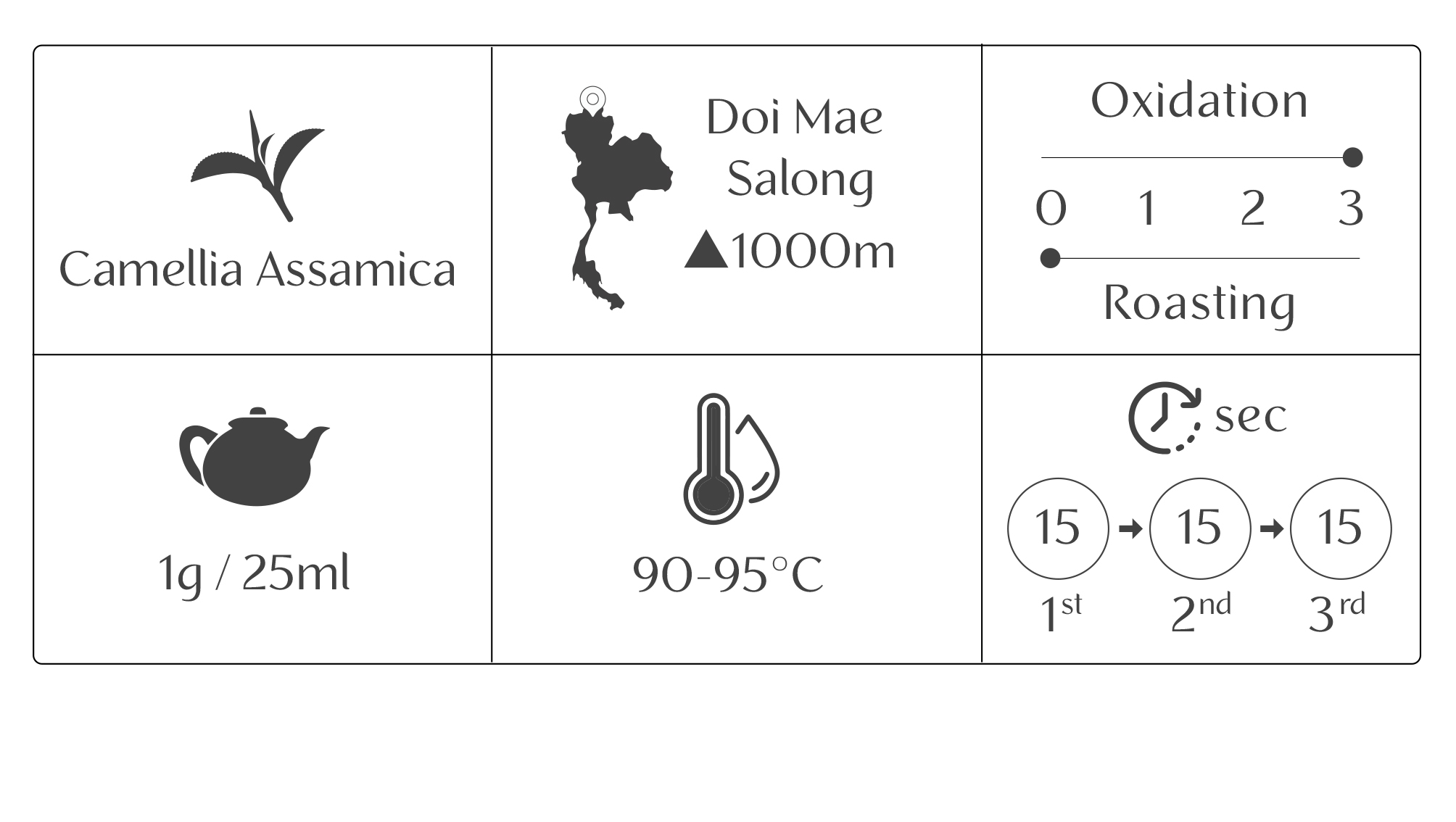
8.8 €
Not available for purchase!
This is a semi oxidized oolong made from the big Camellia Assamica leaves. Dara - a 5th generation tea artisan - and her family, go venture in the forest behind their home and pick the leaves for this tea from old trees, estimated to at least 200 years old. They are wild native plants, and the leaves are hand processed in the small family factory. Unique and full of character. It is sweet and fruity to the nose, reminiscent of dried strawberries. The liquor is thick, with notes of stables and hay, and a honey finish, almost sour. Wild and unconventional, with a bitter potential, like a young sheng puerh: do not over steep.
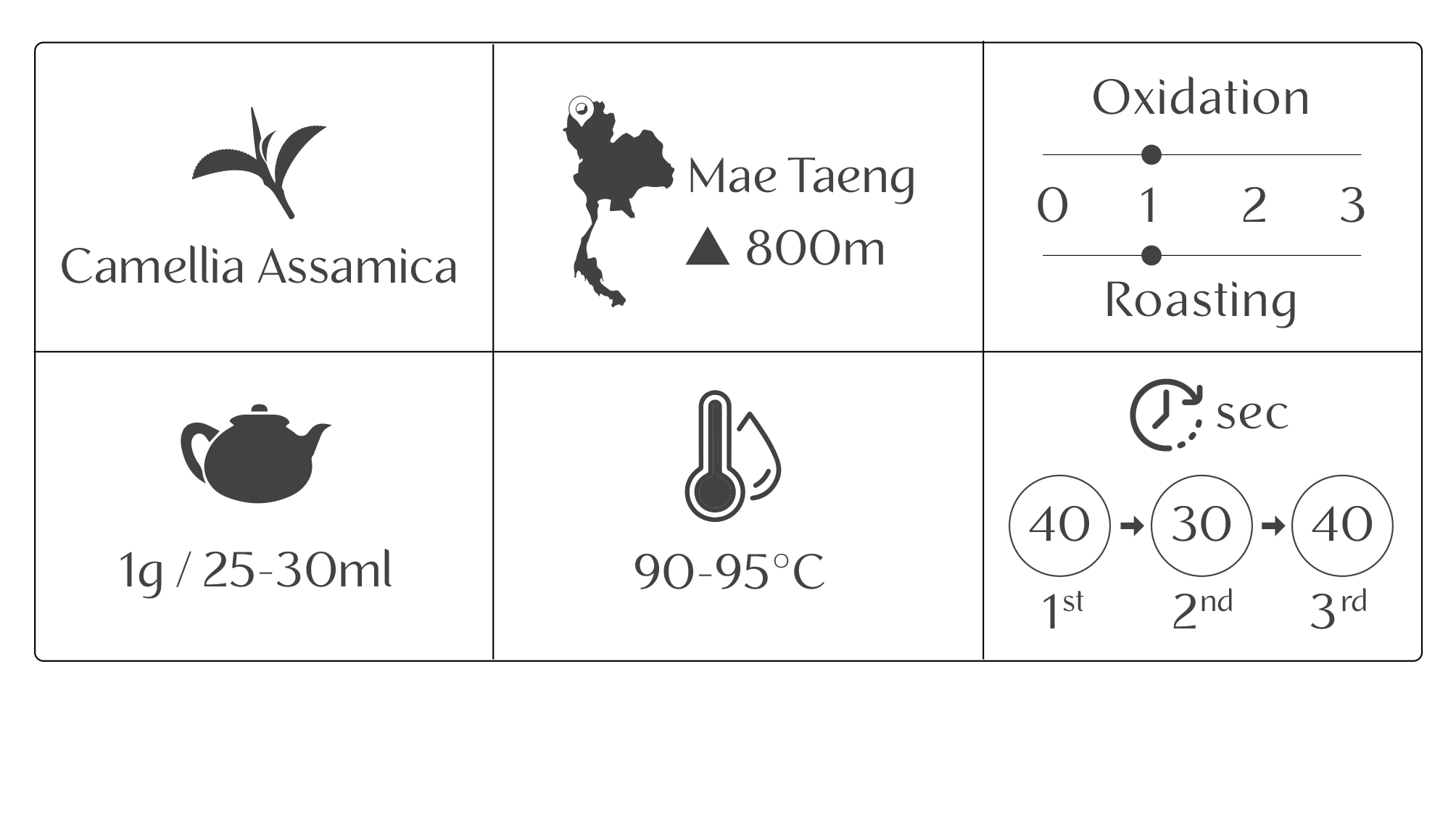
5.3 €
Not available for purchase!
Introducing our exclusive Dong Fang Black Tea, sourced from the pristine landscapes of northern Thailand's Montenaus region, Chiang Dao, where fresh mountain air and nutrient-rich soil converge, our artisanal tea embodies the essence of nature's finest offerings. Crafted with care by a small family business deeply rooted in tradition, each leaf tells a story of generations of expertise and dedication. Cultivated using the revered Chin Xin cultivar, hailing originally from Taiwan. Immerse yourself in a symphony of flavors as you indulge in the delicate notes of honey and fruity undertones, with smooth aftertaste. Thanks to the delicate nibbling of leafhoppers, which tenderly bite the leaves, our tea boasts a uniquely sweet aroma reminiscent of golden honey. From the moment the leaves are hand-picked to the final infusion in your cup, our commitment to quality ensures an unparalleled tea-drinking experience.
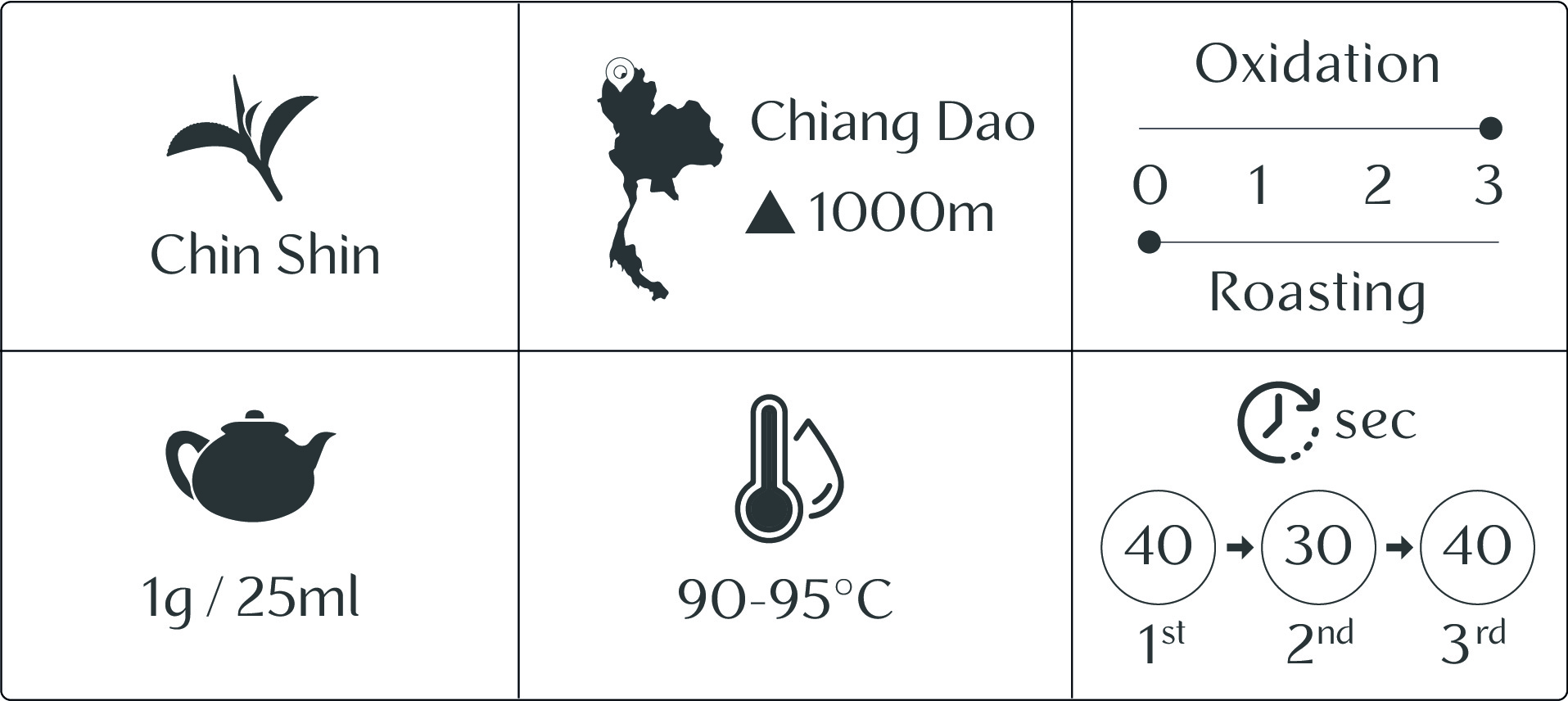
7.8 €
Striving in the mountains of Northern Thailand, the plants used for this classic green oolong are originally from Taiwan. This tea comes from a garden at 1200 meters of altitude, around Ban Rak Thai village. Vegetal and herbaceous, with hints of sour berries. Light and refreshing.
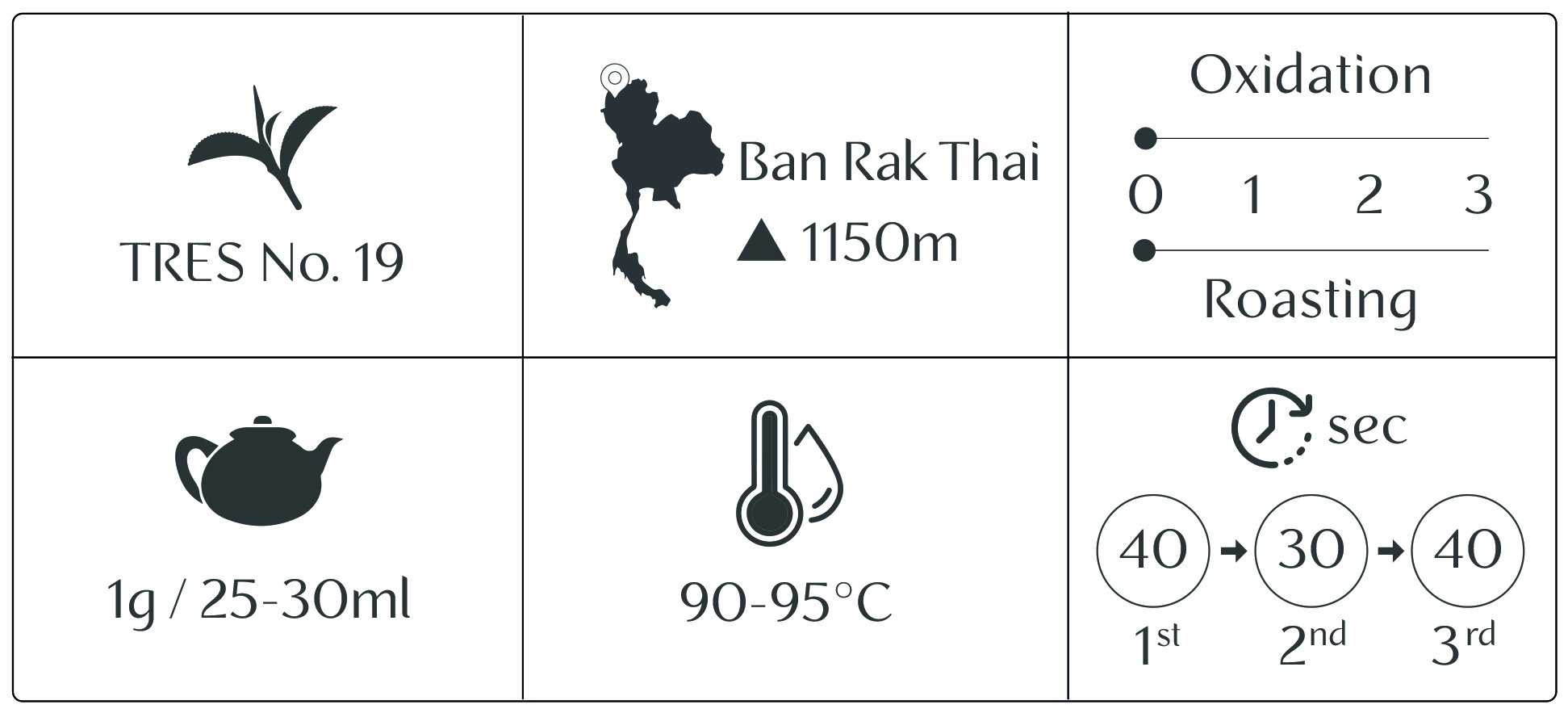
6.2 €
Not available for purchase!
This premium white tea is made of the little budding leaves of trees over 300 years old. Artisans pluck the buds only of naturally growing trees in the hills of Northern Thailand, and sun-dry them, for an ultimately natural and delicate final product. The velvety young leaves offer a rich and silky liquor, round and sweet. Notes of honey and white grapes.
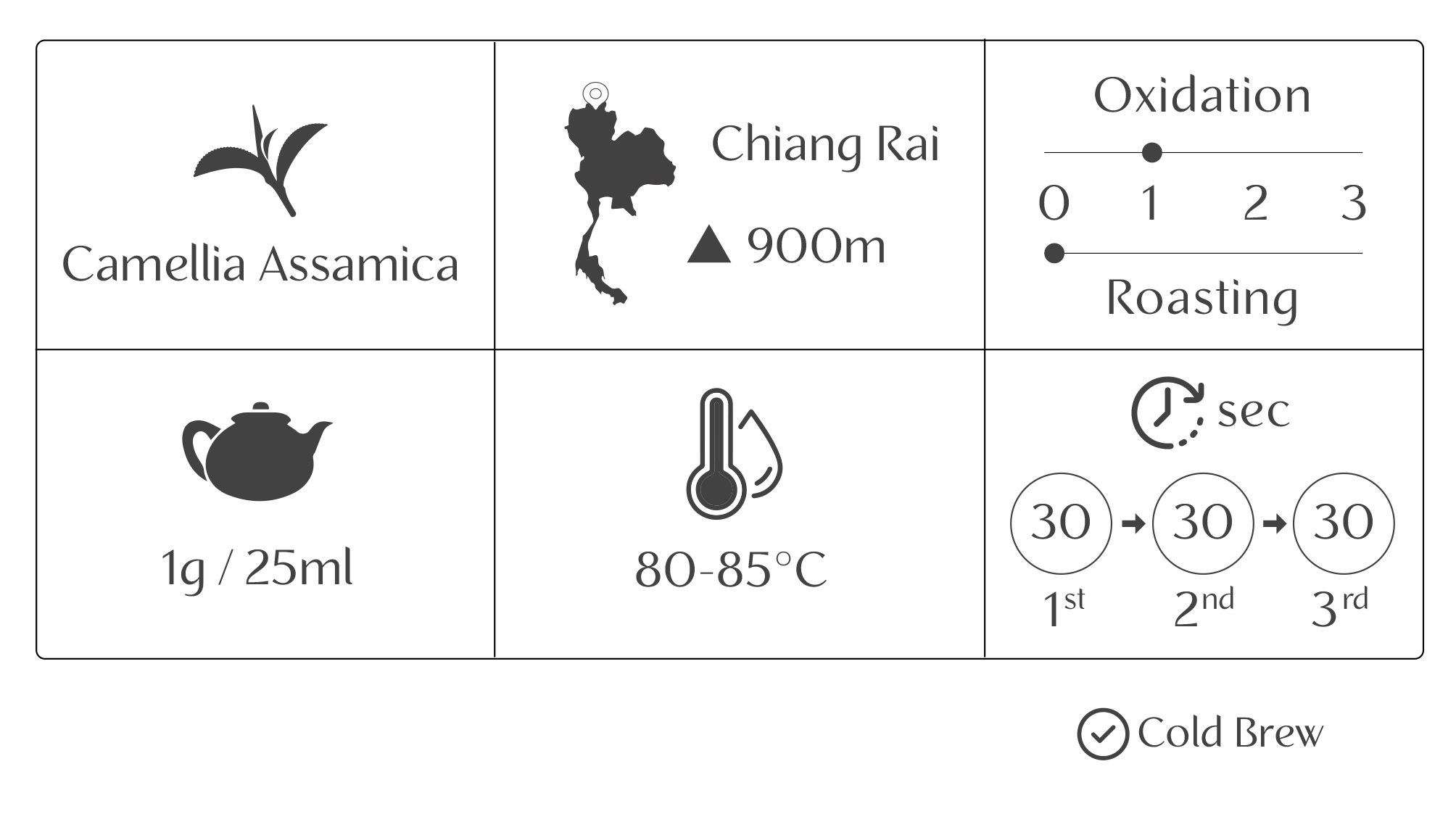
11.5 €
This tightly rolled Jin Xuan oolong is highly oxidized, offering a ruby red infusion. Cultivated in a pesticide free garden, at 1150 meters of altitude, up in the beautiful mountains of Northern Thailand. Fruity, highly fragrant for the nose, with notes of burnt caramel and noble woods.
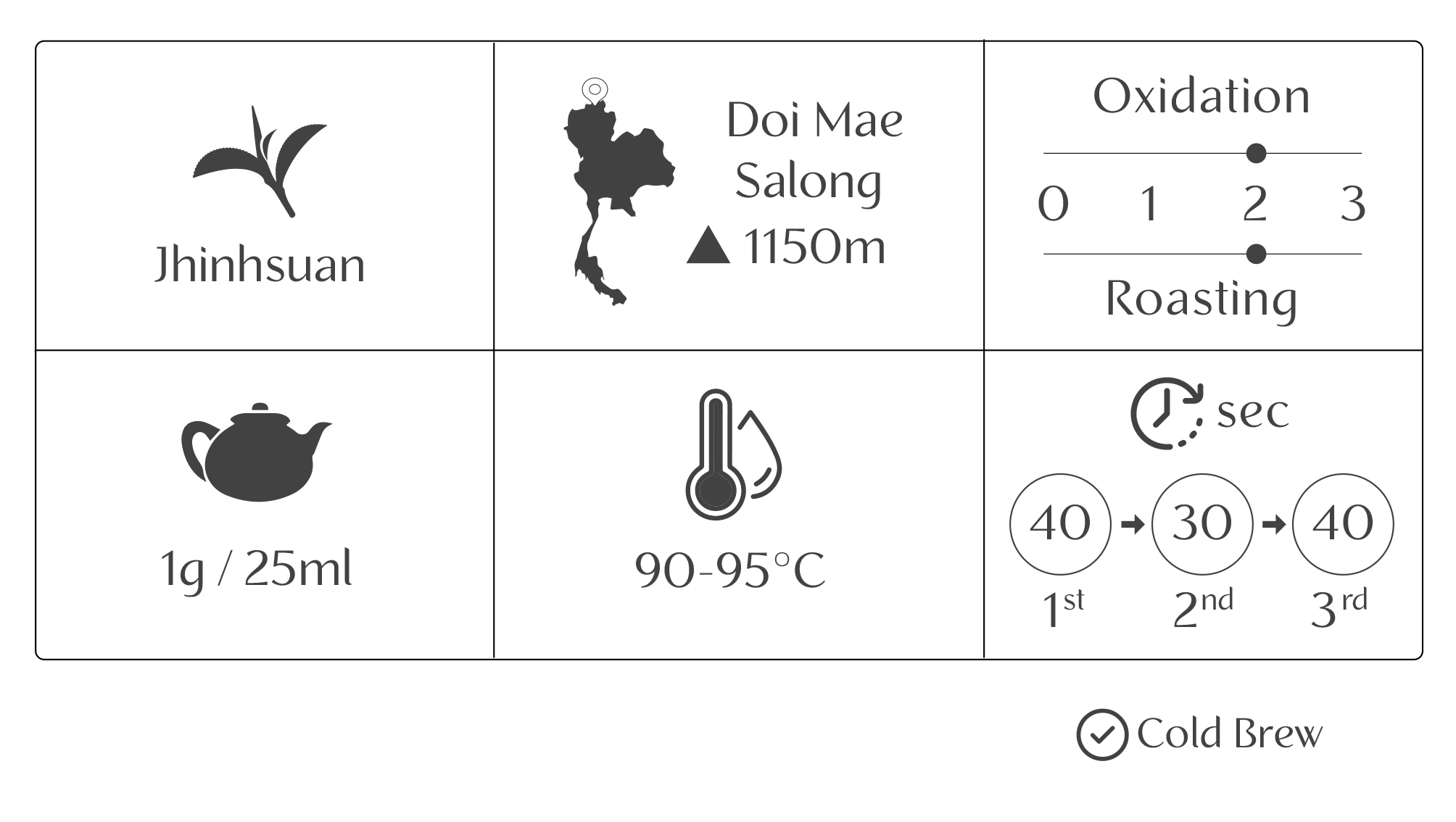
6.2 €
Not available for purchase!
This Bai Mu Dan style sun dried white tea comes from wild specimens, growing naturally for centuries in the mountains of Northern Thailand. Locals venture in the hills North West of Chiang Rai and manually harvest buds and first leaves of wild trees. This tea has a rich honey and hay flavour, with ripe plum notes. Silky in texture, and a bit of zest coming from the stems and first leaves. Soothing and enchanting, a true must-try for white tea lovers.
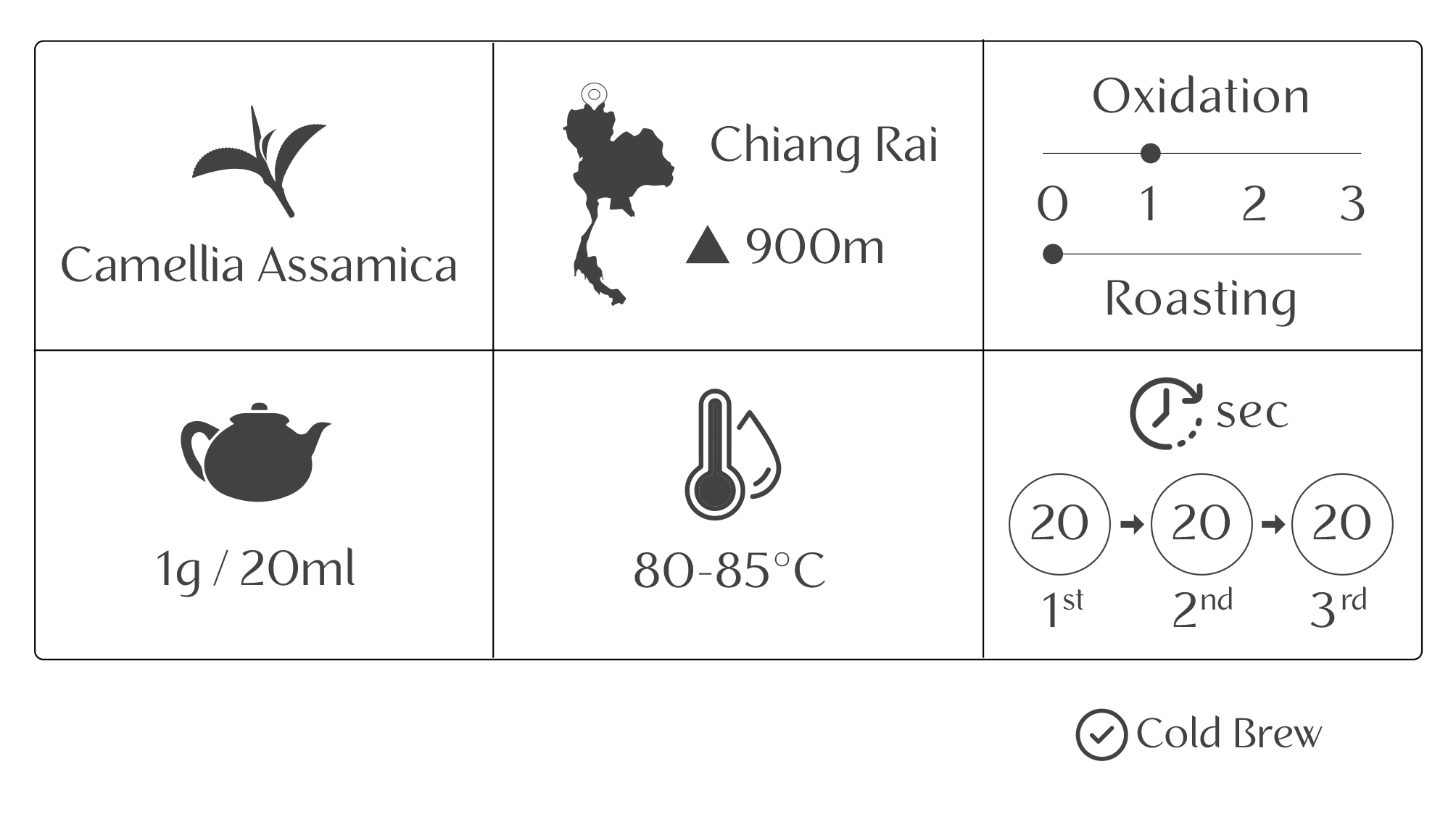
9.7 €







